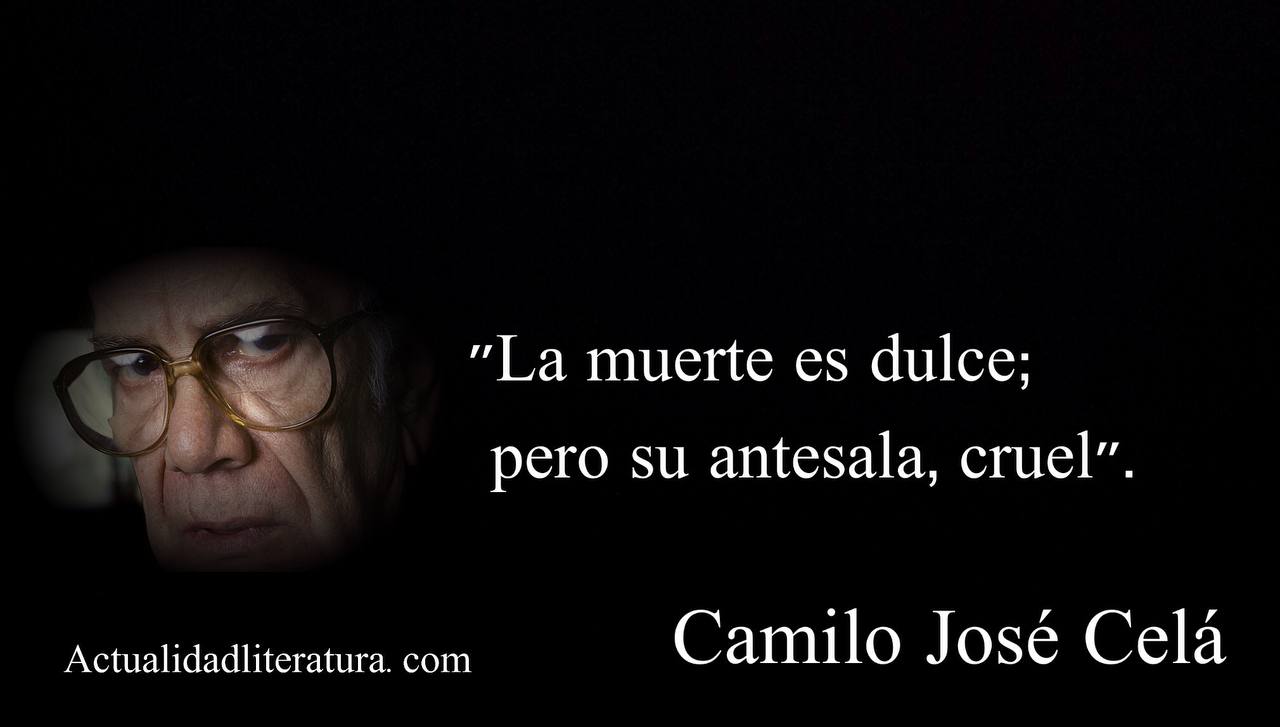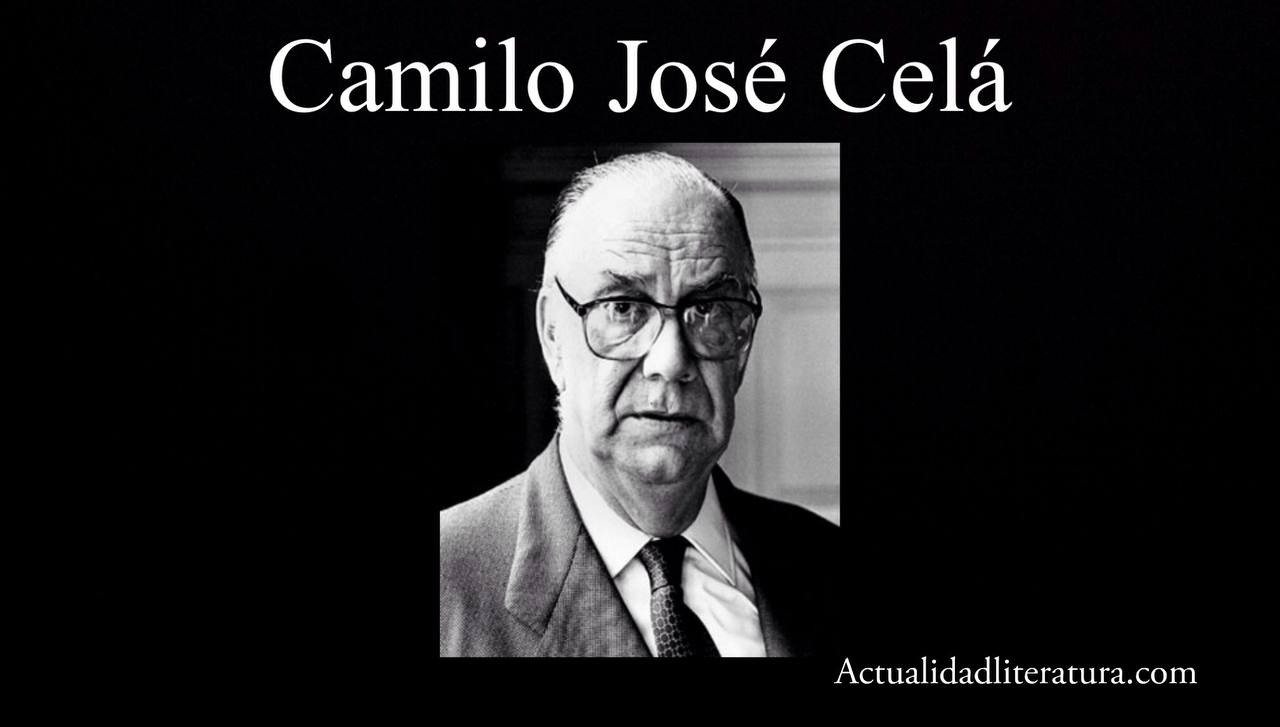
Quote by Camilo José Celá
Camilo José Cela is one of the most decorated Spanish writers of the XNUMXth century and an emblematic figure in post-war literature. Winner of the Nobel Prize for Literature, the illustrious A Coruña received such distinction due to an exquisite prose patent in many of his works. Between them, Pascal Duarte's family (1942) represents an inescapable title due to its transcendence.
This novel is considered the first of "tremendismo", a narrative style characterized by describing very crude images through harsh language and without extenuating circumstances. Specifically, the violent story of Pascal Duarte is carried out by a peasant from Extremadura who perpetrates several crimes and must appear before a court.
Summary of Pascal Duarte's family
Initial approach
Pascal —first-person narrator— begins his appearance by presenting himself as a 55-year-old peasant, native of Torremejía, a village near Badajoz. Successively, it provides details about his hometown and how his father, a smuggler, used to beat him and his mother. In the same way, his mother became violent when she drank, so the protagonist preferred to leave.
In the following chapters, the narrator describes other characters. First, he talks about Rosario, an alcoholic teenager who ran away from home to the town of Almendralejo. There, she became the partner of a handsome rogue bullfighter nicknamed "El Estrao", with whom Duarte argued over the girl. Then, he recounts various current (and disturbing) events of everyday life in that countryside.
Between interrogations and memories
The narrator spends two weeks without writing due to time dedicated to the questionnaires that you must answer before the prosecutors. Before, he had already talked about the tricks he applied to stay with his future wife, Lola. At that moment, he imagines what his day to day would be like in the corral or canal where he usually fished, instead of the jail where he is.
At this point, Pascal knows he doesn't have much time left. For this reason, he nostalgically remembers her courtship with Lola, plus her subsequent pregnancy that ended up precipitating her marriage. Next, he explains the ins and outs of his wedding with the subsequent honeymoon in Mérida. During that time he experienced some problems because the mare he was riding hit an old lady.
The man with the knife
Returning to Torremejía, Pascal stayed drinking with his friends in a tavern while he sent Lola home. in the tavern, Duarte is accused of thief by an acquaintance, consequently, the protagonist stabbed the slanderer three times before leaving with his friends to his home. When he arrived at his home, Mrs. Engracia received him with the news of the abortion suffered by his wife.

The misfortune occurred because the woman was thrown by the mare, consequently, Pascal killed the equine with knives. After one year, Lola became pregnant again; at nine months she gave birth to the baby that was baptized with the name of her father. But a bad wind caused the death of the infant when he had just turned eleven months.
the violence continues
Duarte spent several seasons immersed in absolute and inconsolable sadness. To make matters worse, his mother and his wife constantly complained to him. In the present, Pascal stops writing for a month while he enters a contemplative state of the world from his cell. Eventually, he decides to pick up the pen again after confessing.
His new lines recall when he took a train to Madrid, where he worked fifteen days. After that time, he went to La Coruña with the intention of boarding a ship bound for America. However, he was unable to embark because he did not have enough money and chose to return home.
A shocking ending
Once at home, his wife reveals to him that she is pregnant by another man.. Pascal, enraged, insists that he confess the name of the adulterer. Finally, she mentions the "stretchy" seconds before falling dead into Duarte's arms. That way, the protagonist starts a long chase of the bullfighter until he finds it and kills him.
Because of the homicide Pascal served three years in prison (in reality, he had been sentenced to twenty-eight). As they leave, Rosario tells him that Esperanza -Her cousin- she is in love of him.
He and the young woman become boyfriends and get married, but Duarte's mother continues to make his existence small squares. At that point, the protagonist understands that he must kill his mother in order to live in peace.
Biography of the author, Camilo José Cela
On May 11, 1916 he was born Camilo José Cela and Trulock, in the parish of Iria Flavia, term of Padrón, La Coruña, Spain. He was the firstborn of the two sons of the marriage between Camilo Crisanto Cela and Fernández, and Camila Emanuela Trulock. and Bertorini (his mother had British and Italian ancestry).
a subversive teenager
In 1925, the Cela Trulock family moved to Madrid. In the capital, little Camilo was enrolled in the Escolapios school and proved to be a diligent student. But also committed serious acts of indiscipline; First, he was fired for throwing a compass at a teacher. After a few years, he orchestrated a strike at the Chamberí Marist school and was once again expelled.
Only tuberculosis placated the rebellion of the future writer. In 1931 he was admitted to the Guadarrama sanatorium to treat his condition. He took advantage of this secluded time to read assiduously and write (some of the notes appear in rest pavilion (1944) In 1934, he managed to pass the high school exams at the San Isidro Institute thanks to the support of private teachers.
First publications and participation in the Civil War

Camilo Jose Cela
Cela studied medicine between 1934 and 1936; you too, He was a listener in the literature classes of the poet Pedro Salinas. At that time, the young writer produced numerous poetic pieces. Many of those writings were part of Treading the dubious light of day (1945). When the Civil War broke out (July 1936 – April 1939), Camilo was in the capital.
The Coruñés, of firm conservative convictions, moved to the rebel side, enlisted, went into combat and was wounded in Logroño. Three years after the conclusion of the war conflict, the publication of Pascal Duarte's family y It became the most shocking novel of its time.
Marriages and political position
Cela was married between 1944 and 1990 with María Rosario Conde Picavea; with her he had her only son, Camilo José (1946). Later, in 1991, he married Marina Castaño López; the couple remained together until the writer's death on January 17, 2002. Meanwhile, Cela maintained a position close to the Franco regime and settled in Palma de Mallorca from the 1950s.
In addition, he came to visit other dictatorships —such as that of Marcos Pérez Jiménez in Venezuela, for example— and presided over the Spain-Israel Friendship Society (1970). Additionally, he was co-founder of Editorial Alfaguara (1964), he became a member of the Royal Academy and received numerous accolades. Among them:
- National Prize for Narrative (1984);
- Sant Jordi Prize for Letters (1986);
- Prince of Asturias Award for Letters (1987);
- Nobel Prize for Literature (1989);
- Mariano de Cavia Award for Journalism (1992);
- Planet Award (1994);
- Cervantes Award (1995).
Most outstanding books of Camilo José Cela
In total, Cela published 14 novels, 40 short stories and novellas, 13 travel books, 10 poetic anthologies and more than 40 different texts between articles, essays, plays, memoirs, film manuals and lexicographies. Among those, The Hive (1951) is considered his masterpiece. Mentioned below are other important releases within the vast career of the Spanish author:
- trip to the alcarria (1948), travel book;
- Cadwell talks to his son (1953), epistolary novel;
- the catira (1955), novel;
- Windmill (1956), short story;
- Memories, understandings and wills (1993), autobiographical narrative.
